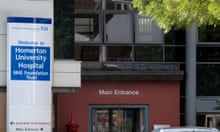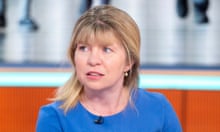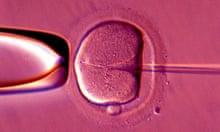New research on egg freezing has this week confirmed what single, well-educated women have instinctively known for years: there is a dearth of eligible men out there.
Professor Marcia Inhorn, an anthropologist at Yale University, and her colleagues interviewed 150 women in their late 30s and early 40s who opted for egg freezing in the US and Israel. Their results show that women were not intentionally postponing childbearing for educational or career reasons, as is often assumed in media coverage of this phenomenon, but rather preserving their remaining fertility because they did not have partners to create a family with. The researchers conclude that women see egg freezing as “a technological concession to the man deficit”, using it to “buy time” while continuing their search for a suitable partner to father their children.
Having begun similar research in the UK last year, at the London Women’s Clinic and the University of Cambridge Centre for Family Research, I can confirm that the picture on this side of the Atlantic looks pretty similar. There are considerable numbers of single, successful, childless women in their 30s and 40s, and an increasing number are heading to fertility clinics to find out more about their reproductive options.
At the fortnightly open seminars for single women that I present at the London Women’s Clinic, I encounter three different groups of women.
The first, determined to be mothers and having given up on Mr Right, come seeking information about “solo motherhood” using donor sperm. These women are usually very well-prepared, having researched and discussed their choices at length with family and friends, and having laid both the practical and financial foundations that single parenthood will entail. Their main concerns focus on whether it would be “fair” to a future child to bring him or her into the world “without a father”, and they often feel stuck both emotionally and morally between the rock of single motherhood and the hard place of childlessness. I am always struck by what great mothers most of these women will undoubtedly make for their much-wanted children.
The second group, women in their early 30s seeking “fertility MOTs” and considering egg freezing, are proactively planning for the great unknown future. Noticeably better informed about female fertility decline than women even five to 10 years older, this generation of young freezers are “leaning in” to their fertility before “leaning in” to their careers. Having frozen eggs at their biological prime, they will have the greatest chance of successful conception with thawed eggs in the future, if they should ever need to resort to this. Best-case scenario, many will conceive naturally, and will look back to find that they spent £5,000 purely to put their minds at ease.
The third and by far the fastest-growing group of women, however, are in their late 30s and early 40s: just as Inhorn describes, they wish to hold out for that elusive partner to have a family with, while recognising that, biologically speaking, they are now standing on a reproductive precipice. Since January I have interviewed many of these women, and in most cases they are highly educated, very successful in their chosen professions, and distinctly cosmopolitan (often having studied, lived and worked in multiple different countries during their fulfilling 20s and 30s). Despite this, many wonder out loud what they have “done wrong” to miss out on the expected life milestones that so many of their friends have achieved, seemingly without effort. Some have recently come out of relationships they had assumed would lead to marriage and children, and feel a need to hit snooze on the biological clock to alleviate the time pressure on new or future relationships. Even as they put themselves out there online and in person, these women are frustrated by their limited partnering options.
These single women are, of course, a self-selecting population. Surely there are many others who are happily child-free, ambivalent about motherhood, or pursuing parenthood in a variety of new arrangements. Furthermore, the majority who are unhappily childless are barred from access to fertility clinics by the hefty price tags of IVF and egg freezing. Yet nevertheless, with a surplus of single women striving to plan for motherhood (presently or in the future), the obvious question has to be: where have all the good men gone?
Well, clearly there are some really great guys out there, married to our best friends or flying the rainbow flag. Some we would settle for are unwilling to commit, more interested in playing the field with the girls we once babysat. A few true gems are hidden in OkCupid, no doubt. But the truth is, as women become more and more successful in educational and career terms, they have begun to outnumber similarly qualified men, and will need to adjust their partner expectations, embark on single parenting, embrace childlessness, or put some eggs in a very cold basket.
The “missing men” theory may reassure the women attending my seminars that their lives are part of demographic trends much broader than their individual choices, but Inhorn’s findings should also make us think carefully about how, as norms change on both sides of the Atlantic, both women and men can best be empowered in their reproductive decision-making. Doctors in lab coats are no substitute for knights in shining armour, but in the absence of the latter, they can expand the practical options available to single women.









